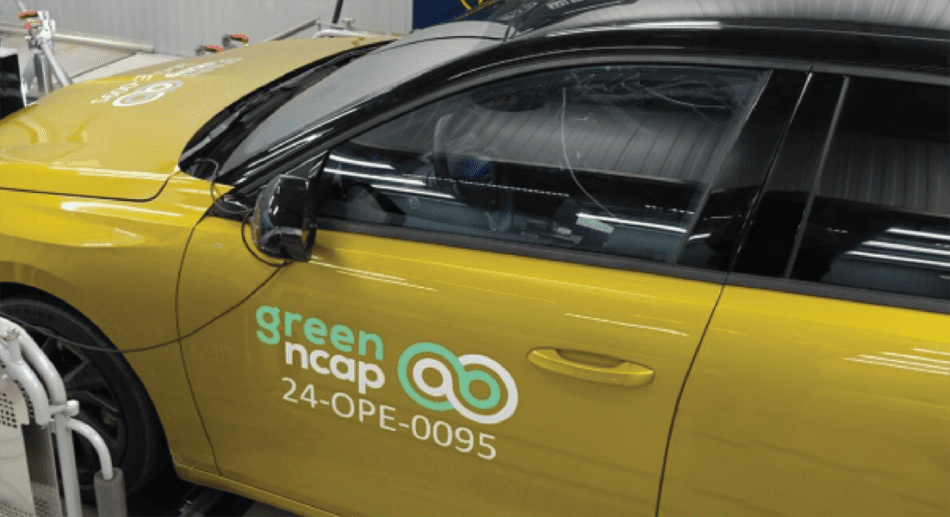New Green NCAP Results Ensure an Easier, Greener Choice for Families

Green NCAP
This month’s release from Green NCAP includes ratings for four vehicles with a range of family-friendly features: the Volkswagen ID.7, the Škoda Enyaq, the Opel Astra 1.5 CDTi, and the Toyota Corolla Cross Hybrid. Although the car sizes and powertrain combinations differ, these cars all contribute to the transition to more sustainable transportation solutions, earning ratings ranging from two to five stars. Green NCAP gives its conclusions.


Families aiming for ample space and comfort will be immediately attracted to the Volkswagen ID.7. Media are calling the ID.7 ‘the most grown up’ of Volkswagen’s electric-car range and are praising the car for its driving refinement despite its considerably large size. The results of Green NCAP’s assessment reveal that Volkswagen has also paid the same commitment to environmental impact as to driving performance, for example, ID.7’s energy efficiency is some of the best-seen by the testing organisation. The car also delivers on range with 506 km achieved in real-world driving, and a 370 km average on the highway at a significant speed of 130 km/h. This is perhaps a result not quite as compelling as a comparable Tesla S, but the car still offers families a pretty decent prospect of a weekend away. The car’s aerodynamic body design, efficient powertrain and well managed occupant comfort all contribute to an impressive overall score of 98% and a five-star rating.


Škoda and its cars have long been a firm family favourite with appealing qualities such as spaciousness, build quality, and reasonable price often cited. ‘Green’ can now be added by the automaker to the list. The Enyaq, Škoda’s first fully electric stylish SUV that has modern families firmly in its sights, impressed Green NCAP with its performance. Just like the ID.7, this car has a significant mass, which affects its energy consumption values, yet its electric powertrain is still relatively efficient and, coupled with a healthy range, should appease the anxieties of most nervous electric drivers. Both the ID.7 and the Enyaq have the same battery size of 77 kWh, which was confirmed by Green NCAP in its battery capacity tests. The Enyaq scores a well-deserved five-star rating and a score of 96%.


For families that are still unsure about how well electric vehicles will fit into their daily routines and are put off by a higher price, a hybrid vehicle remains a suitable choice. Green NCAP tested the 2023 model of the Toyota Corolla Cross Hybrid with a 2.0 litre naturally aspirated petrol engine, electric traction motor and automatic transmission (CVT). This mid-sized SUV is aimed at those who want a car that is both appropriately sized and highly functional. Overall, the car has reasonably low fuel consumption; however, these numbers increase significantly on the highway, as Green NCAP found out. The performance of the exhaust aftertreatment system could also be improved with a stronger focus on CO-emissions, shown particularly on shorter trips with cold engine start and high-power demand situations like overtaking on the highway. The car achieves an overall score of 49% and a two and a half-star rating and just misses out a third star.


For those interested in a smaller family car, Green NCAP recently tested the Opel hatchback 96 kW diesel version of the Astra 1.5 CDTi that is equipped with an 8-speed automatic transmission. The car may not have the refinement of its petrol counterpart according to critics, but credit must go to Opel for the car’s robust and state-of-the-art exhaust after-treatment that deals with gaseous pollutants and particles largely effectively. NOx emissions are low in most situations, although hit higher thresholds when tested in cold and urban conditions. Surprisingly the Astra does not exploit the full energy potential of its diesel engine, so consumption values across a range of journeys are not as efficient as they could be. The recorded consumption values are also notably above the officially declared figures. Overall, the Astra achieves a creditable score of 51% and a three-star rating primarily thanks to its capability to clean its diesel exhaust gases.


“Buying a new car is a maze of choices. There are many factors for a family to consider, such as size, comfort, design, and affordability, but it is worthwhile to take the time to analyse a vehicle’s environmental performance. The most recent Green NCAP tests all demonstrate carmakers’ dedication to improving environmental effect, regardless of powertrain. It is difficult for modern families to consider a complete transition to electric, but we believe that with Green NCAP’s findings, you can arm yourself with a variety of options that will motivate and aid you on the route to a greener decision.”
Aleksandar Damyanov, Green NCAP Technical Manager
Editor’s note
For full results, visit www.greenncap.com.
About Green NCAP
Green NCAP is an independent initiative which promotes the development of cars which are clean, energy efficient and cause as little harm to the environment as possible.
Green NCAP uses a broad range of tests to address the flaws in approval tests and, through consumer information, rewards those manufacturers whose vehicles go beyond the minimum requirements and offer excellent, robust, real-world performance.
We believe that consumers need to be adequately informed about the energy consumption and related greenhouse gas emissions of the vehicle of their choice.







